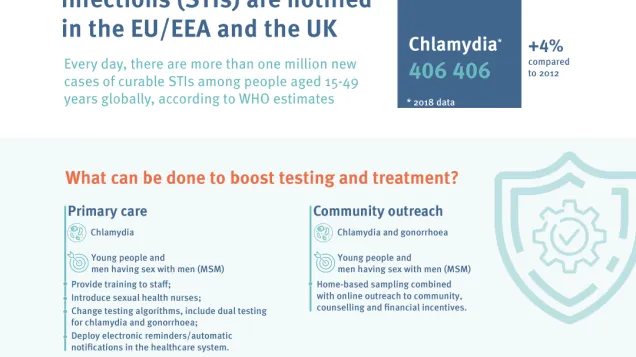Syphilis
Syphilis is a sexually transmitted infection caused by the bacteria Treponema pallidum. Syphilis can also be transmitted from mother to child which is called congenital syphilis.
The initial symptom is usually a single ulcer at the site of infection – most commonly in the area around the genitalia, anus, lips or in the mouth. This is called primary syphilis. If the infection is not treated it can progress to secondary syphilis with a rash on the palms of the hands and soles of the feet. Sores can appear in the mouth, vagina or anus.
There may also be other symptoms including fever, swollen lymph nodes, sore throat, patchy hair loss, muscle aches and fatigue. After the symptoms resolve, patients can go for many years without any symptoms (latent syphilis). Some patients then develop tertiary syphilis. This stage of syphilis can affect many different parts of the body including the brain and nervous system, the heart and blood vessels, the eyes and the ears.
Syphilis can only be transmitted between people, through direct contact with wounds or mucous membranes. The main mode of transmission is sexual contact. This can be through sexual intercourse (anal or vaginal) but also through oral sex and kissing at or near an infectious wound. In addition, syphilis can also be transmitted through blood transfusion and organ donation although this is currently a very rare and unlikely event. Occupational exposure can occur among healthcare workers or laboratory personnel. The incubation period is between 10 and 90 days.
Syphilis can also be transmitted congenitally from mother to child.
There are no vaccines available. Treatment for syphilis is with antibiotics administered through a single injection of penicillin for primary and secondary syphilis and can be more complex for tertiary syphilis.
Safer sex is the main way to prevent syphilis. This includes using condoms, reducing the number of casual partners and making sure sexual partners get tested. Condoms can help prevent syphilis transmission if used correctly every time a person has sex. Transmission can still occur if a syphilis lesion is present in an area or site not covered by the condom. Routine testing should be done in all pregnant women.



